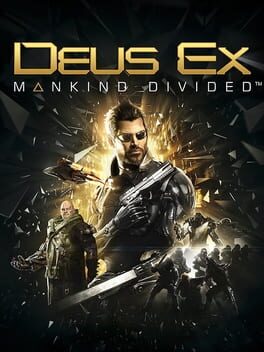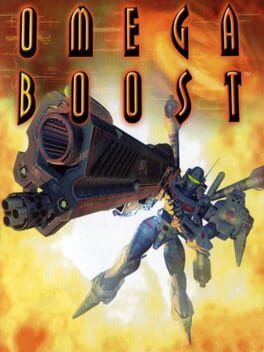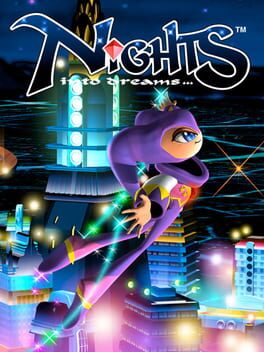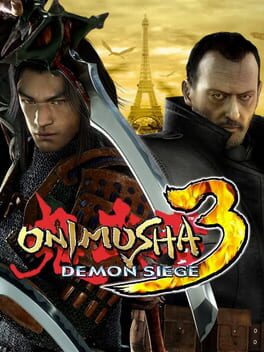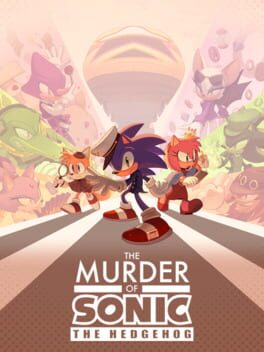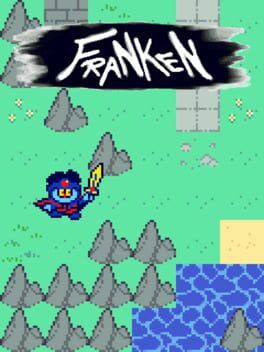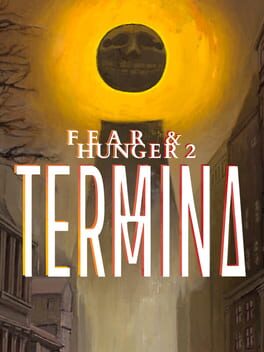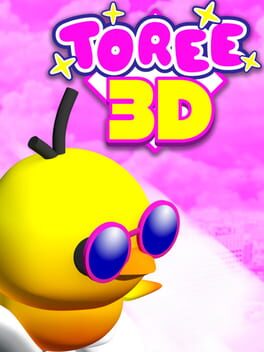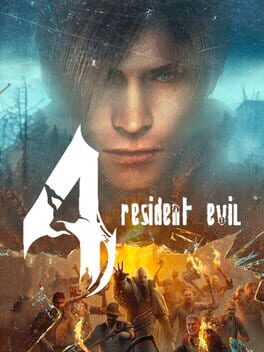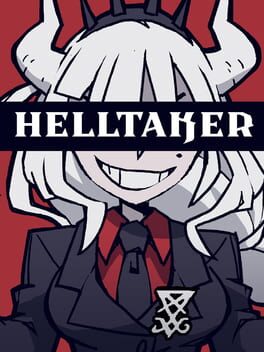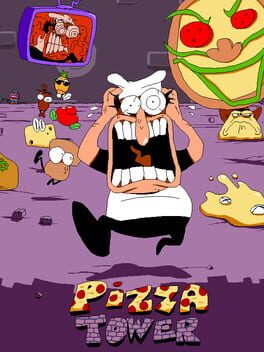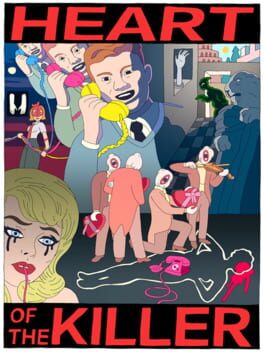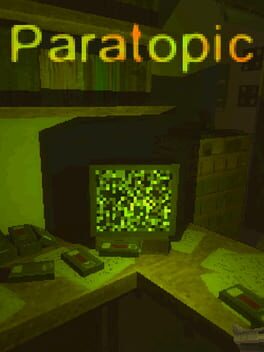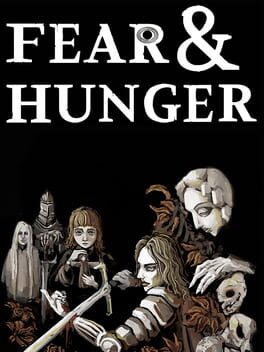ThatOneGuy
A smaller scale follow up to Human Revolution that while not reaching the same heights in terms of story, the gameplay is a mark improvement. Mankind Divided fixes a lot of the problems I had with the previous game by allowing more ways to tackle mission objectives and also making a non-lethal playthrough viable and enjoyable.
I personally have no qualms with the story being a lot smaller and scale as I felt it was a logical follow up to the monumental ending of Human Revolution. What I will criticize is how short it is with there being only four levels outside of the hub with one of those being the tutorial. I'm all for shorter games but I felt here it does the story a disservice by not fleshing out certain plot points and characters as much as I wish they did. What makes up for this is the hub setting of Prague is a lot of fun to explore and the side quests are interesting and often pose interesting moral dilemmas.
I think what interests me the most about this game is how immersive sims have evolved since its release. The indie scene has evolved the genre to new heights so I think we are all due for a new entry in the series. The world is utterly fascinating and I really like Adam Jensen as a protagonist, now if only Square Enix would stop being so screwy with the franchise.
I personally have no qualms with the story being a lot smaller and scale as I felt it was a logical follow up to the monumental ending of Human Revolution. What I will criticize is how short it is with there being only four levels outside of the hub with one of those being the tutorial. I'm all for shorter games but I felt here it does the story a disservice by not fleshing out certain plot points and characters as much as I wish they did. What makes up for this is the hub setting of Prague is a lot of fun to explore and the side quests are interesting and often pose interesting moral dilemmas.
I think what interests me the most about this game is how immersive sims have evolved since its release. The indie scene has evolved the genre to new heights so I think we are all due for a new entry in the series. The world is utterly fascinating and I really like Adam Jensen as a protagonist, now if only Square Enix would stop being so screwy with the franchise.
1999
When your rail shooter mecha game starts and begins with 90s alt rock you know you are in for a badass experience. Really impressed with what they were able to pull off in terms of how smooth the gameplay is and how stylized all the different models were. Some of the fights were a little tricky as the controls felt a little floaty though this was probably because I was playing on an emulator. The latter half of the game also has some frustrating difficulty spikes that would have been a lot more annoying if I hadn't used save states. The biggest pull for me was the variety of awesome mech designs the game has that I was slobbering over throughout my playthrough. A badass game for badass mecha fans.
Like many people, my age, my first interaction with the Nights franchise was the cameo in Sonic Adventure. As a kid, I had no idea what the heck a Nights was and why the music was so goddamn good. Most of my life later and I finally got around to playing the original game and it was better than I expected. Not only is it incredibly charming with its brightly colored levels and amazing soundtrack but the gameplay, even without a tutorial, is quick to pick up on and very satisfying to get the hang of. Mastering the movement to the point where you can quickly guide through the levels was a very magical moment experience.
I would wholeheartedly recommend this game to anyone as I feel it encapsulates a time when games weren't bogged down by all the changes in the industry over the past years. Despite its short length, the game captures childlike wonder in a way that leaves me smiling every time I play it. It really is something special.
I would wholeheartedly recommend this game to anyone as I feel it encapsulates a time when games weren't bogged down by all the changes in the industry over the past years. Despite its short length, the game captures childlike wonder in a way that leaves me smiling every time I play it. It really is something special.
As someone who really enjoys the genre of hack and slash, I was a little disappointed that none Onimusha games clicked with me in a way that I would've hoped. That being said I appreciated seeing the innovation in each game culminating in what I think is the best entry in the series. The presentation and gameplay work well to create a game that, while fun, is also a bit flawed.
Some of the complaints I have are enigmatic of many action games during this time, that being balancing and difficulty curves. Perhaps I have been too spoiled with games such as DMC 5 but I feel like some enemy encounters and bosses were only manageable if you had the right resources on hand rather than if you were just skilled enough. I'd rather be tested on how well I can use my fighting skills rather than I I saved up enough on mana. Some fights often boiled down to spamming magic because if you don't you are either fighting an enemy that will block all of your attacks, will deal massive damage to you, or will force you into a corner where enemies can potentially stun-lock you. This is not a problem exclusive to this game as I feel a lot of action games of this era test my patience in how much I am willing to get constantly ganked by enemies, the answer being not very much.
With my biggest complaints out of the way, I want to say how much I love the premise of this entry. The use of time travel and using present-day Paris as a second setting is a campy concept that I am all here for. The new main character Jaques is someone I greatly enjoyed playing as, with his move set bringing a little more depth to the combat that I felt was needed. Sending a gruff Frenchman back in time to Feudal Japan to kickass and shoot demons definitely makes for the most ridiculous plot in the series. That being said, I felt the story treads a fine line between attempting to be serious like its predecessors while also acknowledging the campiness of the whole premise.
Despite some of my misgivings with the gameplay, I still enjoyed my time with the game. The areas are all pretty unique and fun to explore, the introduction of vest items allowed for different playstyles, and overall I sorta miss the times when games like these used janky fixed camera angles. It is by no means a perfect experience but I think it's definitely worth checking out especially if you are fond of this era of gaming.
Some of the complaints I have are enigmatic of many action games during this time, that being balancing and difficulty curves. Perhaps I have been too spoiled with games such as DMC 5 but I feel like some enemy encounters and bosses were only manageable if you had the right resources on hand rather than if you were just skilled enough. I'd rather be tested on how well I can use my fighting skills rather than I I saved up enough on mana. Some fights often boiled down to spamming magic because if you don't you are either fighting an enemy that will block all of your attacks, will deal massive damage to you, or will force you into a corner where enemies can potentially stun-lock you. This is not a problem exclusive to this game as I feel a lot of action games of this era test my patience in how much I am willing to get constantly ganked by enemies, the answer being not very much.
With my biggest complaints out of the way, I want to say how much I love the premise of this entry. The use of time travel and using present-day Paris as a second setting is a campy concept that I am all here for. The new main character Jaques is someone I greatly enjoyed playing as, with his move set bringing a little more depth to the combat that I felt was needed. Sending a gruff Frenchman back in time to Feudal Japan to kickass and shoot demons definitely makes for the most ridiculous plot in the series. That being said, I felt the story treads a fine line between attempting to be serious like its predecessors while also acknowledging the campiness of the whole premise.
Despite some of my misgivings with the gameplay, I still enjoyed my time with the game. The areas are all pretty unique and fun to explore, the introduction of vest items allowed for different playstyles, and overall I sorta miss the times when games like these used janky fixed camera angles. It is by no means a perfect experience but I think it's definitely worth checking out especially if you are fond of this era of gaming.
Definitely an extremely simple game but you get what you pay for which is nothing in this case. In all seriousness, this game is just a short visual novel where you are just vibing with some of your favorite Sonic characters. The writing and characterization are so on-point that I was having enough fun just seeing the character interactions and callbacks from the whole franchise. I understand that this is hardly a detective game but I think if you are playing this game in the first place you definitely find enjoyment just hanging with the Sonic cast.
2022
Such a short and simple game, but extremely charming. Franken is an RPG that pokes fun at all the tropes RPGs have built up over the years but does so in a way that feels fresh and not as in your face as other meta-games. I also loved how fun and colorful all of the sprites were.
There were a handful of moments that really got me with how on the nose it was and that ending is just a masterpiece of video game writing. Despite how meta the writing was it really felt more like a love letter to old RPGs rather than it being a malicious critique of the genre. The game is so short and such a fun time that this is one of my strongest recommendations for a free game.
There were a handful of moments that really got me with how on the nose it was and that ending is just a masterpiece of video game writing. Despite how meta the writing was it really felt more like a love letter to old RPGs rather than it being a malicious critique of the genre. The game is so short and such a fun time that this is one of my strongest recommendations for a free game.
Early this year I played Fear and Hunger for the first time and loved my time with it. I praised its worldbuilding and gothic dark fantasy aesthetic while also acknowledging that some of the challenges the game presents can be extremely offputting to new players. I originally felt the difficulty was something you have to push past initially and then the game becomes immensely easier. When getting into Termina, my first thought was how this game was going to tackle difficulty compared to the first game given its larger scope, larger array of mechanics and completely different setting.
Termina takes place roughly 400 years after the first game and is now adopting a more modern European gothic look rather than dark fantasy. What I find cool is how seamlessly this updated setting creates a more character-driven game while also putting more of an emphasis on the story of the world. The plot centers around a battle royale between 14 different characters, 8 of which are playable. I don’t think I've ever seen this concept used outside of a multiplayer setting and it is utilized to great effect to create a hopeless setting where at some point you will have to kill companions or characters you enjoy. What makes this situation harder is how good the writing is for each of the characters as they all have their own comprehensive backstory that makes you feel sorry for them. The inclusion of all these characters also makes progression more interesting as I valued discovering new interactions and set pieces with the characters over finding new items.
The new mechanic Termina includes that works hand in hand with the large roster of characters is the new three-day mechanic. The three-day time limit the game sets up at the start sets a tension to make the most of your time between each save as well as to discover all the hidden events that take place during each day. Each of the 14 contestants can be located all across the map during each day, with their locations changing almost every time you save and the day progresses. This is a fascinating mechanic as you can potentially miss out on recruiting or killing other characters as well as witnessing events where other contestants kill each other or encounters where contestants turn into horrible Silent Hill monsters. These events all have the potential to occur each day and there appears to be more on the way in future updates that will hopefully make this mechanic even more comprehensive to all the characters.
Now the main point of comparison for the two games is how Termina handles difficulty compared to the first entry. The starting hours were near identical as I was plagued with frustrating enemies and mechanics that forced me to restart the beginning section of the game over and over again. Knowing now that I had limited saves put more stress on me initially as I didn’t want to waste one on a run where I lost a limb or gathered crappy resources. But just like the first game, once I finally started to grasp what the game allowed me to do and get away with the game became infinitely easier. Some examples of this include finding an infinite health farm, learning how to regrow my limbs, and utilizing my party to kill every enemy during the first term. The amount of customization on offer is pretty incredible as you can build your character and party in a way that accounts for almost every encounter. The inclusion of numerous additional skills, items, and equipment makes it hard pressed to find players that had the exact same build as you. With each playable character having unique skills, starting items, and interactions in the game, there is a lot of replayability and mixing and matching if one finds playing as one character difficult. The tools are all there to help you maximize your experience and when I finally reached that point it was incredibly thrilling to backtrack through areas that once gave me a challenge and instead become a walking god of death.
Fear and Hunger Termina is the ideal sequel where it greatly adapts and expands upon the original designs and mechanics of the first game. The art and aesthetics are much stronger and more realized culminating in a very disturbing and ethereal horror RPG experience. The amount of details and secrets on offer is mind-numbing that is simply impossible to encounter them all in one playthrough. With the game also continuing to receive updates that promise to add more events encounters and maybe even endings, Termina is a smorgasbord of content. I can already tell this game will adopt a cult following as there is truly nothing else like it. I am so excited to see what fans and creatives will do with the ideas and mechanics this game presents hopefully culminating in a new era of horror-themed RPGs.
My first playthrough clocked in around 19 hours, with 8 of those hours being counted by the in-game clock. So much of my playthrough was trial and error as I wanted to see what was possible in this sandbox and how I could maximize my experience. During my time with Termina, I couldn’t help but be astounded by all the creative designs, locations and story beats that just made me so happy that I chose video games as one of my favorite hobbies. One of my favorite details is how the entirety of ending A correlates to post World-War in a way that I feel is one of the strongest depictions of how the whole world changed. Just like the first game, Termina is not for everyone as it is so heedlessly cruel, especially on the higher difficulties. But I think if you are someone who appreciates it when a medium accomplishes something wholly unique to its genre you need to do yourself the favor and try it out. It’s one of the coolest games I’ve ever played and I am so happy I got into this series.
Termina takes place roughly 400 years after the first game and is now adopting a more modern European gothic look rather than dark fantasy. What I find cool is how seamlessly this updated setting creates a more character-driven game while also putting more of an emphasis on the story of the world. The plot centers around a battle royale between 14 different characters, 8 of which are playable. I don’t think I've ever seen this concept used outside of a multiplayer setting and it is utilized to great effect to create a hopeless setting where at some point you will have to kill companions or characters you enjoy. What makes this situation harder is how good the writing is for each of the characters as they all have their own comprehensive backstory that makes you feel sorry for them. The inclusion of all these characters also makes progression more interesting as I valued discovering new interactions and set pieces with the characters over finding new items.
The new mechanic Termina includes that works hand in hand with the large roster of characters is the new three-day mechanic. The three-day time limit the game sets up at the start sets a tension to make the most of your time between each save as well as to discover all the hidden events that take place during each day. Each of the 14 contestants can be located all across the map during each day, with their locations changing almost every time you save and the day progresses. This is a fascinating mechanic as you can potentially miss out on recruiting or killing other characters as well as witnessing events where other contestants kill each other or encounters where contestants turn into horrible Silent Hill monsters. These events all have the potential to occur each day and there appears to be more on the way in future updates that will hopefully make this mechanic even more comprehensive to all the characters.
Now the main point of comparison for the two games is how Termina handles difficulty compared to the first entry. The starting hours were near identical as I was plagued with frustrating enemies and mechanics that forced me to restart the beginning section of the game over and over again. Knowing now that I had limited saves put more stress on me initially as I didn’t want to waste one on a run where I lost a limb or gathered crappy resources. But just like the first game, once I finally started to grasp what the game allowed me to do and get away with the game became infinitely easier. Some examples of this include finding an infinite health farm, learning how to regrow my limbs, and utilizing my party to kill every enemy during the first term. The amount of customization on offer is pretty incredible as you can build your character and party in a way that accounts for almost every encounter. The inclusion of numerous additional skills, items, and equipment makes it hard pressed to find players that had the exact same build as you. With each playable character having unique skills, starting items, and interactions in the game, there is a lot of replayability and mixing and matching if one finds playing as one character difficult. The tools are all there to help you maximize your experience and when I finally reached that point it was incredibly thrilling to backtrack through areas that once gave me a challenge and instead become a walking god of death.
Fear and Hunger Termina is the ideal sequel where it greatly adapts and expands upon the original designs and mechanics of the first game. The art and aesthetics are much stronger and more realized culminating in a very disturbing and ethereal horror RPG experience. The amount of details and secrets on offer is mind-numbing that is simply impossible to encounter them all in one playthrough. With the game also continuing to receive updates that promise to add more events encounters and maybe even endings, Termina is a smorgasbord of content. I can already tell this game will adopt a cult following as there is truly nothing else like it. I am so excited to see what fans and creatives will do with the ideas and mechanics this game presents hopefully culminating in a new era of horror-themed RPGs.
My first playthrough clocked in around 19 hours, with 8 of those hours being counted by the in-game clock. So much of my playthrough was trial and error as I wanted to see what was possible in this sandbox and how I could maximize my experience. During my time with Termina, I couldn’t help but be astounded by all the creative designs, locations and story beats that just made me so happy that I chose video games as one of my favorite hobbies. One of my favorite details is how the entirety of ending A correlates to post World-War in a way that I feel is one of the strongest depictions of how the whole world changed. Just like the first game, Termina is not for everyone as it is so heedlessly cruel, especially on the higher difficulties. But I think if you are someone who appreciates it when a medium accomplishes something wholly unique to its genre you need to do yourself the favor and try it out. It’s one of the coolest games I’ve ever played and I am so happy I got into this series.
2021
What does $1 get you? A forty-minute cheerful platformer that couldn't be more simple a game. The plot is you control a small yellow bird trying to get his ice cream back from the grim reaper of video games. The game sports 9 levels with a new mechanic thrown into each one with the themes of the levels repeating themselves after you beat the first four. That's pretty much the whole game. The basic movement is fun and responsive and I got a kick out of trying to speedrun levels. I definitely thought there was going to be some sort of twist as some of the levels built up that there would be some sort of finale but instead, it ends like any other level.
It really feels like a game that could act as an excellent introduction to the platforming genre but overall has very little substance or staying power. That being said I will always enjoy running around 3D retro spaces and the aesthetics of the game made me nostalgic. I've heard its sequel is far better so in my mind this game is simply a jumping-off point for the developer to hone their skills. Still worth the $1 though.
It really feels like a game that could act as an excellent introduction to the platforming genre but overall has very little substance or staying power. That being said I will always enjoy running around 3D retro spaces and the aesthetics of the game made me nostalgic. I've heard its sequel is far better so in my mind this game is simply a jumping-off point for the developer to hone their skills. Still worth the $1 though.
2021
This was my first time ever experiencing VR and oh boy what a great first game to play. Resident Evil 4 has consistently remained one of my favorite games of all time, so to play it in this hyper-interactive way was honestly just mind-blowing to me. Being able to see all the tiny little details up close that the game originally had was extremely cool and the gameplay VR offers is the fastest combat I have ever experienced with this game. I am definitely a lot more sold on the concept of VR since it was able to breathe new life into a game I had played many times already. I belive now that VR definitely has a place in the gaming industry and while it may never go completely mainstream I think it has the potential to deliver extremely cool experiences with games.
2023
When it comes to games it can't be understated how easily a fun vibrant style can win me over. Hi-Fi Rush has this in spades as what initially pulled me was its gorgeous art style and excellent character designs. Almost everything this game brings to the table is presented with such confidence that it was hard not to appreciate what was in front of me.
What initially made me stick around was the extremely satisfying rhythm-based combat. Even a guy like me who often struggles with rhythm-based gameplay fell in love with how good it felt to get through an encounter without missing a beat. As soon as I heard the invisible crowd chanting my name as I got my first S rank I was hooked.
One of the features that surprised me the most was the game's emphasis on parrying. Being a hack-and-slash game I was not oblivious that there would be some form of parrying. This was something I initially dread as, even though I have played my fair share of these types of games, parrying was something I always found myself struggling with. Unlike these other games, Hi-Fi Rush sits you down and forces you to be somewhat competent with this mechanic. This irked me at first as I felt it was unfair for the game to roadblock me with a mechanic I was hopefully gonna try to use as little as possible. This lesson was what finally convinced me of how useful this mechanic is. Not only does the game become immensely easier once this mechanic is mastered, it is also the gateway to some of the most stylish combat I have ever seen.
Outside of the stellar gameplay, what I truly loved the most were the characters and their interactions with one another. Chai is such a loveable goofball that brings out the best in all the people around him. Watching his journey from a wannabe "rockstar" to a genuine rockstar was immensely enjoyable. The cast as a whole is one of the strongest I have seen in a while. The family love that slowly grows between them on all is genuinely one of the most wholesome dynamics I've seen in games.
A common fact about this game is how it just came out of nowhere. The success of Hi-Fi Rush should be a wake-up call for the industry that a game does not need all the marketing in the world to be one hell of an experience. Turns out that making your game with genuine love and creativity creates one of the most lauded games of the year. Hopefully, this marks a return to form in some ways where games start to incorporate aspects such as alternate costumes, challenge modes, and a boatload of other extra content without them being regulated to DLC.
Overall I feel this is one of the best games in its genre. Tango Gameworks has a record now of surprising releases with Evil Dead 2 and now Hi-Fi Rush. I am extremely excited to see what they make next.
What initially made me stick around was the extremely satisfying rhythm-based combat. Even a guy like me who often struggles with rhythm-based gameplay fell in love with how good it felt to get through an encounter without missing a beat. As soon as I heard the invisible crowd chanting my name as I got my first S rank I was hooked.
One of the features that surprised me the most was the game's emphasis on parrying. Being a hack-and-slash game I was not oblivious that there would be some form of parrying. This was something I initially dread as, even though I have played my fair share of these types of games, parrying was something I always found myself struggling with. Unlike these other games, Hi-Fi Rush sits you down and forces you to be somewhat competent with this mechanic. This irked me at first as I felt it was unfair for the game to roadblock me with a mechanic I was hopefully gonna try to use as little as possible. This lesson was what finally convinced me of how useful this mechanic is. Not only does the game become immensely easier once this mechanic is mastered, it is also the gateway to some of the most stylish combat I have ever seen.
Outside of the stellar gameplay, what I truly loved the most were the characters and their interactions with one another. Chai is such a loveable goofball that brings out the best in all the people around him. Watching his journey from a wannabe "rockstar" to a genuine rockstar was immensely enjoyable. The cast as a whole is one of the strongest I have seen in a while. The family love that slowly grows between them on all is genuinely one of the most wholesome dynamics I've seen in games.
A common fact about this game is how it just came out of nowhere. The success of Hi-Fi Rush should be a wake-up call for the industry that a game does not need all the marketing in the world to be one hell of an experience. Turns out that making your game with genuine love and creativity creates one of the most lauded games of the year. Hopefully, this marks a return to form in some ways where games start to incorporate aspects such as alternate costumes, challenge modes, and a boatload of other extra content without them being regulated to DLC.
Overall I feel this is one of the best games in its genre. Tango Gameworks has a record now of surprising releases with Evil Dead 2 and now Hi-Fi Rush. I am extremely excited to see what they make next.
2020
I know people have given a lot of crap on this game mainly due to its incessantly horny fanbase that'll admit got me a draw a little bit of fan art when it came out. Having finally actually played the game it's just alright. It's got a lovely art style and a few puzzles that made me scratch my brain a little bit but it's over and done so quickly that it won't leave any sort of lasting impression on you. Then again since it is so short and free there's really no harm in indulging in what is just basically a short presentation of waifus.
I am including my thoughts on the short extended chapter, Examtaker as well. Definitely liked the new rooms more where you didn't have a limit on how many times you moved. Also found the boss to be a lot more challenging than I thought it would be which led to more frustration than enjoyment.
I am including my thoughts on the short extended chapter, Examtaker as well. Definitely liked the new rooms more where you didn't have a limit on how many times you moved. Also found the boss to be a lot more challenging than I thought it would be which led to more frustration than enjoyment.
2023
I would say for the longest when it came to platformers I would always prefer a 3-D platform over a 2-D one. Games like Mario Sunshine, the Sly series, and A Hat in Time rank are my bread and butter and rank as some of my favorite games of all time. In recent memory, the script has started to flip with games such as Celeste and Ori and the Blind Forest where I’ve learned to appreciate the ingenuity needed to really flesh out a 2-D space and make it interesting. Then Pizza Tower entered and knocked it up a notch by rushing down my preconceived notions and comboing them out of existence. Pizza Tower exceeds my expectations and then some.
Almost every facet of the game works to create a truly unique 90s-esque action-packed platformer like no other I’ve played before. A normal run through the game is honestly pretty breezy with levels not penalizing you too harshly for messing up. It is not until you go for the higher ranks and the coveted P rank that the game shows its true colors. I don’t think I’ve ever seen a platformer design better speed-running levels than this game. While I haven't P ranked all the levels, I found it incredibly satisfying to slowly memorize each level down to the minute detail in order to optimize a perfect run. It’s amazing how through this learning process you see how every part of the level is designed so that you can run through it at maximum speed. On a normal run, you might question why there is a specific layout or random enemy placements but a perfect run uses each aspect to create a brutal challenge where a single mistake could cost you the highest rank.
Now, normally when I play games I rarely feel the need to achieve the highest ranks as I never felt satisfied replaying sections of a game over and over again often losing time in the process. Pizza Tower’s quick and snappy gameplay and lack of a health bar allow the player to take their time to learn the layouts of each level. The learning curve is extremely generous and even after playing a level two or three times, you will find yourself generating ideal routes and executing them perfectly. Whenever I wasn’t playing the game I was planning these routes in my head and itching to test them out. It's hard to describe the feeling I get when attempting these perfect runs. The bated breaths, sweaty palms, and hyper fixation all culminate in some of the most satisfying gameplay I've ever experienced.
Outside of the gameplay, the art style and soundtrack of the game work extremely to create a style so wacky and cartoony that it would not be out of place in the cartoon pantheon. Every sound bit, wacky tune, or funny scream has been bouncing around my head since I've beaten it, and even as I am writing this review I have one of the tracks stuck in my head. Even the simple act of attacking an enemy has such a clear crunchy sound associated with it that increases the satisfaction of the action tenfold. Of the three-hour soundtrack, almost every track does a good job of adding momentum to the level often including a crescendo point at which point the track changes to its second variant. Whenever this happens when I am playing it's hard for me not to get giddy.
There are so many other things I feel I could talk about. The great boss fights, especially the final boss, the genuinely hilarious comedy, fun secrets, and even the oddly terrifying horror segments. I feel this game is one of those once-in-a-blue-moon games that accomplishes everything it sets out to do while also setting a new standard for 2-D platformers. It’s a game that only makes me happy whenever I think about it and also demands my attention whenever I try to play something else. Pizza Tower is one of the most fun games I have ever played and one I can see myself coming back to time and time again.
P.S. I am glad this game ended the age-old debate “does pineapple belong on pizza?” with a very discernable YES.
Almost every facet of the game works to create a truly unique 90s-esque action-packed platformer like no other I’ve played before. A normal run through the game is honestly pretty breezy with levels not penalizing you too harshly for messing up. It is not until you go for the higher ranks and the coveted P rank that the game shows its true colors. I don’t think I’ve ever seen a platformer design better speed-running levels than this game. While I haven't P ranked all the levels, I found it incredibly satisfying to slowly memorize each level down to the minute detail in order to optimize a perfect run. It’s amazing how through this learning process you see how every part of the level is designed so that you can run through it at maximum speed. On a normal run, you might question why there is a specific layout or random enemy placements but a perfect run uses each aspect to create a brutal challenge where a single mistake could cost you the highest rank.
Now, normally when I play games I rarely feel the need to achieve the highest ranks as I never felt satisfied replaying sections of a game over and over again often losing time in the process. Pizza Tower’s quick and snappy gameplay and lack of a health bar allow the player to take their time to learn the layouts of each level. The learning curve is extremely generous and even after playing a level two or three times, you will find yourself generating ideal routes and executing them perfectly. Whenever I wasn’t playing the game I was planning these routes in my head and itching to test them out. It's hard to describe the feeling I get when attempting these perfect runs. The bated breaths, sweaty palms, and hyper fixation all culminate in some of the most satisfying gameplay I've ever experienced.
Outside of the gameplay, the art style and soundtrack of the game work extremely to create a style so wacky and cartoony that it would not be out of place in the cartoon pantheon. Every sound bit, wacky tune, or funny scream has been bouncing around my head since I've beaten it, and even as I am writing this review I have one of the tracks stuck in my head. Even the simple act of attacking an enemy has such a clear crunchy sound associated with it that increases the satisfaction of the action tenfold. Of the three-hour soundtrack, almost every track does a good job of adding momentum to the level often including a crescendo point at which point the track changes to its second variant. Whenever this happens when I am playing it's hard for me not to get giddy.
There are so many other things I feel I could talk about. The great boss fights, especially the final boss, the genuinely hilarious comedy, fun secrets, and even the oddly terrifying horror segments. I feel this game is one of those once-in-a-blue-moon games that accomplishes everything it sets out to do while also setting a new standard for 2-D platformers. It’s a game that only makes me happy whenever I think about it and also demands my attention whenever I try to play something else. Pizza Tower is one of the most fun games I have ever played and one I can see myself coming back to time and time again.
P.S. I am glad this game ended the age-old debate “does pineapple belong on pizza?” with a very discernable YES.
2023
Another brilliant edition to the series. As these titles are released I find it very interesting how Garmendistirct has gotten more confident with making them as such has gotten more ambitious. The increased use of mixed media, the ever-charming dialogue, and the absurdity of the world are things I won't get tired of. The series as a whole seems like an outlet for the type of weird creativity that I adore.
I am starting to wonder if these games are leading up to something as they barely connected to each other. But if it is ultimately just a series of BB going to increasingly strange places where she always faces some bizarre new threat I would be completely fine with it. This is definitely a comfort series I wish the very best.
I am starting to wonder if these games are leading up to something as they barely connected to each other. But if it is ultimately just a series of BB going to increasingly strange places where she always faces some bizarre new threat I would be completely fine with it. This is definitely a comfort series I wish the very best.
2018
Some of the most interesting games I have played always seem to be a walking sim of some kind which is strange due to how limiting the genre can be in the gameplay department. This game is no exception and I commend it for painting a very intriguing narrative in the span of around 40 min. Still, it left me feeling that it was more akin to a short movie rather than a video game. The bones are there for a more interesting continuation that I doubt will ever be made. I loved its weirdness but desired more from it ultimately.
2018
Often when I play a game that is labeled as unfair and difficult it's not long before this statement is boiled down to “once you understand the mechanics it's not too bad”. The biggest example of something like this is with Dark Souls where large swaths of the game are completely fair as long as you understand what you are working with. Fear and Hunger breaks this mold by genuinely being one of the cruelest and most unfair games I have ever played. Almost every mechanic in the game is designed to work against you. Enemy encounters can leave you limbless, having acquired permanent disabilities or encountering a fate worse than death and this could all occur when fighting the first enemy. The game also heavily uses RNG where simple things such as looting a crate could either reward you with a useful healing item or your sixth duplication of a useless piece of armor. Accompanying this base RNG is a coin toss mechanic that dictates how certain events will play out. Once prompted, you choose either heads or tails, and depending on the outcome you will either be heavily rewarded or dead on the ground. This mechanic is used in enemy encounters, specific world events and even searching treasure chests. Hell, even most save points require you to flip a coin to decide whether you get to save or get bum-rushed by an enemy.
After reading all of this you might be thinking “why would anyone want to play a game that is so reliant on RNG when even one mistake could set you back upwards to an hour”. The answer to this is how rewarding it feels to discover how to utilize everything the game throws at you to your advantage. Never before have I experienced such a sharp learning curve and been immediately rewarded for understanding the game. Some examples of this are figuring out how you can break save areas so that you never have to worry about getting attacked while saving or utilizing seemingly useless scrolls to acquire some of the most powerful equipment and spells fairly early in the game. One of the most useful strategies I utilized was doing a death run where once I saved I played very loosely and did not worry about dying just so I could see what the future encounters were which allowed me to prepare ahead. In all honesty, I feel this game is more of a survival horror than an RPG.
My final point I wanted to touch on was how in love I am with the dark fantasy aesthetic the game has. The setting, characters, and deep lore are all utilized to develop a compelling narrative where mortals go toe to toe with gods. The story displays ramifications one would realistically suffer from if one were to witness beings beyond their comprehension in a world that only seeks their demise. The feebleness of humanity, monstrosities being born from the darkness, and the willingness to delve deeper into hell are all themes I adore. These themes are further elevated by the game's extremely moody art style and soundtrack which worked so well on me that I felt queasy after my first session. The style of the whole game really is something I have never seen before and one I greatly admire.
I was originally going to end this review by saying “I love this game, do not play it” but to be honest I feel there are too many cool things here not to be experienced by someone that might be interested in it. It is a cruel game, yes, but it was probably one of the most unique and memorable experiences I’ve had with an RPG in a while. I know for a fact this game is not for everyone but I feel it has an overall low cost of entry. In conclusion, I love this game, play it.
After reading all of this you might be thinking “why would anyone want to play a game that is so reliant on RNG when even one mistake could set you back upwards to an hour”. The answer to this is how rewarding it feels to discover how to utilize everything the game throws at you to your advantage. Never before have I experienced such a sharp learning curve and been immediately rewarded for understanding the game. Some examples of this are figuring out how you can break save areas so that you never have to worry about getting attacked while saving or utilizing seemingly useless scrolls to acquire some of the most powerful equipment and spells fairly early in the game. One of the most useful strategies I utilized was doing a death run where once I saved I played very loosely and did not worry about dying just so I could see what the future encounters were which allowed me to prepare ahead. In all honesty, I feel this game is more of a survival horror than an RPG.
My final point I wanted to touch on was how in love I am with the dark fantasy aesthetic the game has. The setting, characters, and deep lore are all utilized to develop a compelling narrative where mortals go toe to toe with gods. The story displays ramifications one would realistically suffer from if one were to witness beings beyond their comprehension in a world that only seeks their demise. The feebleness of humanity, monstrosities being born from the darkness, and the willingness to delve deeper into hell are all themes I adore. These themes are further elevated by the game's extremely moody art style and soundtrack which worked so well on me that I felt queasy after my first session. The style of the whole game really is something I have never seen before and one I greatly admire.
I was originally going to end this review by saying “I love this game, do not play it” but to be honest I feel there are too many cool things here not to be experienced by someone that might be interested in it. It is a cruel game, yes, but it was probably one of the most unique and memorable experiences I’ve had with an RPG in a while. I know for a fact this game is not for everyone but I feel it has an overall low cost of entry. In conclusion, I love this game, play it.
